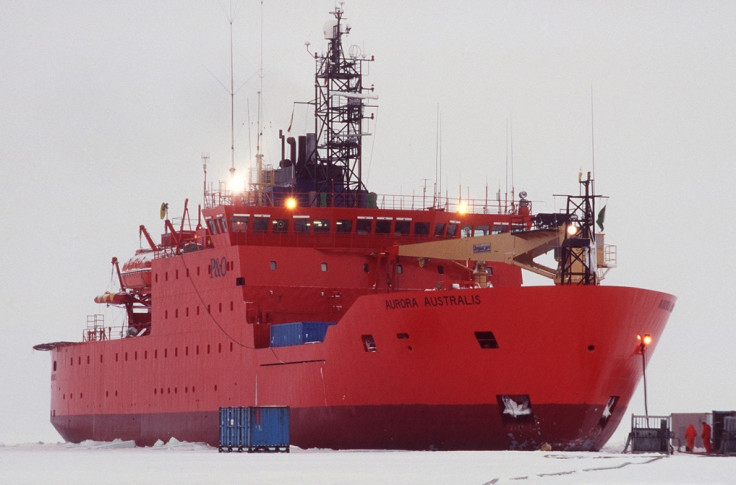Aurora Australis Retreats from Mission to Rescue Russian Ship in Antarctic

The Australian icebreaker sent to rescue a Russian ship stranded in the Antarctic has had to retreat due to heavy snow and blizzards.
Aurora Australis had come as close as 10 nautical miles from MV Akademik Shokalskiy, but had to return to open waters and is now about 18 miles from it, the Australian Maritime Safety Authority (AMSA) told Reuters.
Two icebreakers that had responded to the trapped vessel's distress signal have nearly given up on efforts to plough through the ice and reach the stricken vessel, which is carrying 74 passengers.
The Aurora, however, can make a second rescue attempt if the weather improves.
"Further attempts may be made by the vessel ... once weather conditions improve," said Lisa Martin, AMSA spokeswoman.
The Snow Dragon has a helicopter on board which was earlier sent to conduct a survey around Shokalskiy to assess the ice situation. It reported that the Russian ship was tilting to one side and the thickness of ice was beyond the Snow Dragon's ice-breaking capability.
The authorities are considering employing the helicopter to rescue the passengers, but say that the aircraft cannot be used in bad weather.
"We can't fly a helicopter in these conditions either. There is essentially nothing we can do at this point of time," Martin told Reuters.
Martin feared that the passengers are not likely to be ferried onto land any time soon.
The ship remains trapped in ice sheets since 24 December. It sailed from New Zealand on 28 November on a scientific expedition to the Antarctica to commemorate the hundredth anniversary of an historic voyage by Australian explorer Douglas Mawson.
The team on the stranded vessel is carrying out experiments similar to what Mawson's group conducted during the 1911-1914 expedition, in addition to studying climate change on the icy continent.
The Akademik Shokalskiy is carrying researchers from Australia, New Zealand and Britain along with 22 Russian crew members.
Although the weather conditions remain challenging, on the positive side, cracks are appearing around the ship, raising hopes that it would be freed from the ice floes soon.
"Cracks are developing around the bow. Hope this helps," Christopher Turney, expedition leader, wrote on Twitter, even as the passengers and crew on board waited for Aurora Australis to arrive.
© Copyright IBTimes 2025. All rights reserved.



















